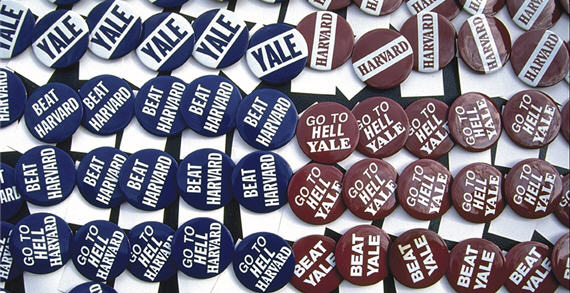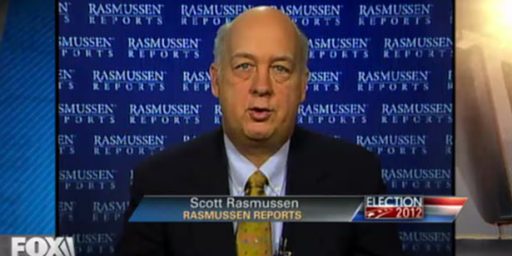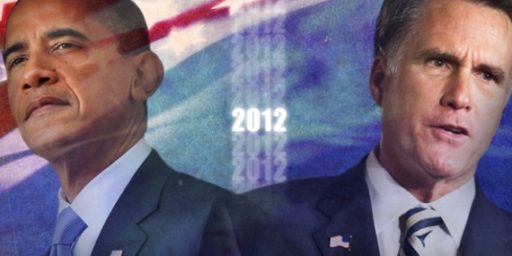3% Say Ivy League Produces Better Workers
79% do not think Ivy League students make better workers. 18% are undecided.
Rasmussen has released one of the dumbest polls ever.
Ronald Reagan was the last president we had who didn’t graduate from an Ivy League school like Harvard or Yale, and the highest levels of government for much of the nation’s history have been filled with Ivy League grads. But that doesn’t seem to influence the thinking of most American Adults.
In fact, only three percent (3%) say individuals who go to Ivy League schools are better workers than those who go to other schools.
Isn’t this a non sequitur? What does getting elected president have to do with being a good worker?
A new Rasmussen Reports telephone survey finds that 79% do not think Ivy League students make better workers. Eighteen percent (18%) are undecided. (To see survey question wording, click here.)
Adults across nearly every demographic agree that an Ivy League education does not necessarily make someone a better worker.
Does the Ivy League purport to make someone a better worker? What does that even mean? And what percentage of Americans have any basis for making the assessment, anyway? The vast majority of people, I’d wager, have never worked with someone with an Ivy League degree.
But only 28% of Americans believe that people who work harder generally make more money than others anyway. Most adults (58%) disagree, while 14% are undecided.
[…]
Men are twice as likely as women to think hard workers get paid more, and men under the age of 40 believe it more than their elders. But most Americans across all demographic categories say those who work harder do not generally get paid more than others.
Hard work is generally necessary to make a good living but it’s hardly the only factor–or even the most important. But the age and gender disparities on the question are interesting.
Most American Adults think how much money an individual is paid should depend more on what they get done on the job rather than their educational background or how long they’ve worked for a company.
Aside from schoolteachers and unionized labor, few people get paid based on education or seniority. Credentials are important in getting hired and promoted but they have little bearing one on the job.
In March of last year, an overwhelming majority of Americans (81%) said that people learn more practical skills through life experiences and work after college rather than in college.
I’ve got a PhD and could have told you that before starting grad school. College is only tangentially about teaching practical skills; it’s about preparing the mind for a life of learning.
In December, just 30% of Americans said it is possible for anyone in America to work hard and get rich.
Most people lack the talent and desire required to earn massive amounts of money. And it’s very, very difficult indeed to get truly rich working for someone else.







I had no idea that 3% of the population had attended Ivy League schools.
Not to be snarky, but explain to me why the general population is qualified to speak on whether an Ivy League educated person is a harder worker…
Besides, everyone knows that the real hard workers graduate from the University of Chicago.
(btw… based on the students I’ve observed at Ivy Leagues and non-Ivy schools, there isn’t that much of a different… well, with the exception of the U of C).
You forgot government workers, well federal workers, a lot of their pay is based on the pieces of paper they hold. If the job requires a degree, the Bachelors starts as on level of GS, a Masters at a higher one. Sadly for the Ph.Ds, a doctorate on matters some of the time in the formal announcement.
So true but the bureaucrats in general but when back by Democrats in particular make it as hard as possible for someone to open and run their own operation. Plus, if you start making real money the Progressives figure it belongs to them and try to take it.
The worst part is that by working for yourself, you are unlikely to become a union member being you’re the boss. But never fear a few years ago, the GAO did a report on collective bargaining rights finding 76 % of workers had them. Those still left out include, Independent Contractors, undocumented alien workers (not denied per se but cannot sue for back pay) and supervisors and managers.
Not to recycle Steven’s thread, but instead of Government works you should have written bureaucratic workers. Having worked 8 years in a corporate bureaucracy and spent the last eigth years or so in various academic bureaucracies, the same rules held there as well.
So for example, while at a major US corporation (at least it was then) my forward progress was going to be severely limited by the lack of an MBA (as were a number of rather brilliant lifers). Beyond degrees needed for specialized jobs (try getting a research gig without a terminal degree), once you passed a certain level, then it wasn’t just an MBA, but one from one of subset of programs.
One of the reasons I didn’t choose an MBA path was that the entire MBA racket is largely set up so you need to take the best paying job possible (regardless of your interest in the company) to help you start paying off a costly degree.
And the same, of course, is true in higher ed. Even administrators are expected to have their papers (hence the rise of BS degrees like “Higher Ed Administration”).
So what you are suggesting really isn’t in any way restricted to the government.
BTW, this makes absolutely no sense…
@JKB
“But never fear a few years ago, the GAO did a report on collective bargaining rights finding 76 % of workers had them. ”
Got a cite for that?
I said, had collective bargaining rights not that they were unionized.
That report is from 2001, but, passing this over, I think we would be misreading it if we understand “have collective bargaining rights” to mean “exercises collective bargaining rights.” My reading of that document is that the three-quarters of the civilian workforce mentioned are covered by various federal, state, and local laws that grants them CBRs. However, having a right does not mean exercising a right.
Perhaps any misunderstanding is mine. Did you mean to say that those folks having collective bargaining rights have the right to form a union and exercise those rights (as my first comment implied) — or that they, in fact, exercise those rights absent a union?
Actually, I just found it amusing that there was concern that Independent Contractors didn’t have the right to form a union. Same with illegal workers. Same with the Supervisory and Management types.
Some how to me, collective bargaining flies in the face of being independent.